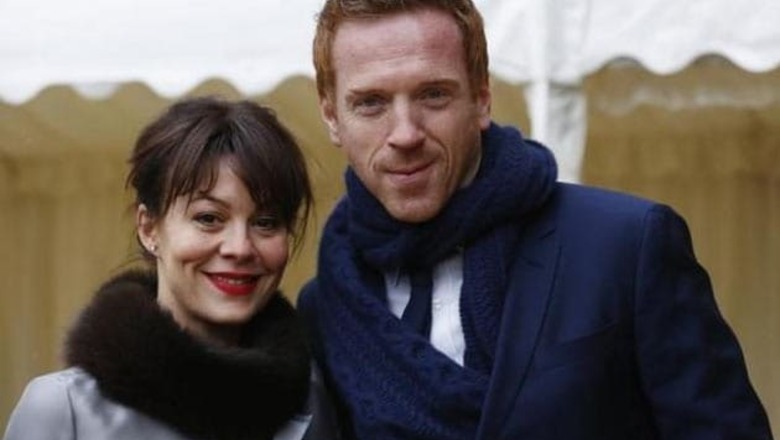
views
Reuters: Helen McCrory of Harry Potter fame is a chain-smoking Medea and pop duo Goldfrapp provides a riveting score for a new staging in London of Euripides's 2,500-year-old play that may not be the "Medea" of all time but is certainly one for this age.
The adaptation, which had its press night at Britain's National Theater on Monday, sets the scene as the audience enters to see Medea's two young, doomed sons lying in sleeping bags on stage, watching television under the watchful eye of their nurse.
On a floor above them is a room with a banquet table set with a wedding cake, Their father, Jason, played by Danny Sapani, will marry Kreusa, the young daughter of King Kreon of Corinth in a nuptial that has fired Jason's first wife into a vengeful rage.
At the back of the set is a primeval forest that could serve double duty for the witches from "Macbeth" and where Medea howls her curses and will later kill her sons.
The nurse, played by Michaela Coel, is the Cassandra of the evening, who in her prologue says there is only one way the play can end - and returns at the conclusion to say, in effect, "Well, I told you so."
McCrory, reprising in some ways her Narcissa Malfoy witch from the Potter films, but also deploying the charm of former British Prime Minister Tony Blair's wife, Cherie, whom she portrayed twice on screen, throws her all into the role of the spurned wife who gets revenge by killing her own children.
"I might be choked with misery, famished by grief but there is still life in me," Medea wails, before unearthing a sack containing a poisoned garment for Kreusa to wear, and a dagger to kill her sons. "I'm not finished. There's trouble come to the house of Kreon."
McCrory, all winsomeness and guile one minute, and spitting poison the next, is hardly off stage for a minute of the 90-minute production, directed by Carrie Cracknell, whose staging of "Blurred Lines" about rape culture was a hit for the National last year.
The adaptation, by the National associate director Ben Power, updates the language to modern idiom but dispenses with some of the nuances of other versions.
He pares the role of King Kreon, played by Martin Turner, who as a result gives in a bit too easily to Medea's plea to stay an extra day before being banished from Corinth.
In one of several of Power's updatings that drew laughs from the audience, Medea reassures the nurse who has seen her kowtowing to Kreon that she has not suddenly gone soft.
"Do you honestly believe I would kneel and weep in front of a man like that except to get my own way?"
That extra day will prove to be the undoing of everyone.
Jason, the same one from mythology whom Medea helped to steal the Golden Fleece from her own father in far-away Colchis, is the perfect male hypocrite. "It seems I must defend myself," he says. "I married, I made you happy, I civilized you - you were nothing when I found you."
"We are strangers here ... we would have starved ... I can keep you and our family safe."
But essentially this is a play about women driven to the extreme of what the text says only one woman has ever done before, which is to kill her own children.
The women of Corinth are the Greek chorus, questioning Medea about her intentions and asking how she could do such a thing. They also perform twitchy dances to the Goldfrapp score suggestive of the pressures on women who, as Medea says, must split in two to give birth. She says she would rather go into battle like a man than ever do it again.
In the end Medea overcomes her love for her children, and for Jason, to provide him and his by-then dead bride, who has been reduced to a heap of bones by the poisoned robe, with the wedding day from Hell. The audience, though, gets a great 90 minutes of theater.















Comments
0 comment